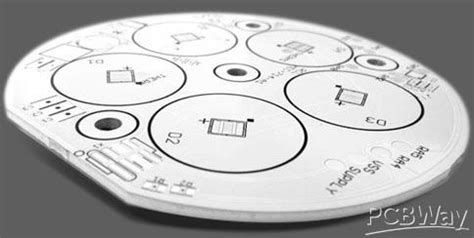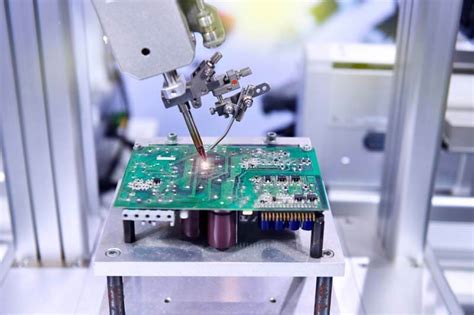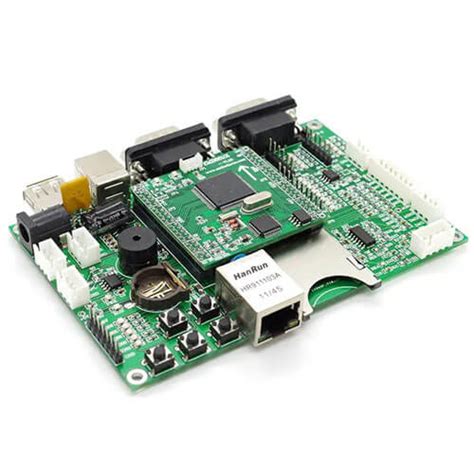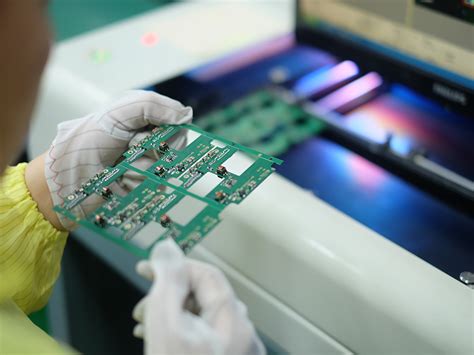Unlocking Efficiency: The Advantages of Aluminum PCB Prototyping
Key Takeaways
When considering aluminum PCB prototyping, you will quickly realize the myriad of advantages it brings to the table compared to traditional materials. One of the most notable benefits is superior heat dissipation. Electronic components often generate heat, and using aluminum PCBs can effectively manage this heat, ensuring that your devices operate within optimal temperature ranges. This characteristic not only extends the lifespan of your products but also enhances their overall reliability. Furthermore, durability and strength are inherent traits of aluminum, which means that your prototypes can withstand testing environments without compromising their structure. This durability is critical when working with pcb manufacturing, as it can help to minimize the potential costs associated with defects and failures.
Additionally, aluminum’s lightweight design plays a crucial role in performance enhancement. With a reduced weight in your hardware, you will likely notice improved functionality in various electronic applications. All these advantages collectively streamline the prototyping process, making it more efficient for you as a designer or engineer. Companies engaged in pcb manufacturing are increasingly recognizing these benefits, as they translate into lower pcb manufacturing costs and more competitive pricing for consumers. Thus, embracing aluminum PCB prototyping not only positions you ahead in innovation but also aligns with sound business strategies within the ever-evolving landscape of pcb manufacturing companies.
Unlocking Efficiency: The Advantages of Aluminum PCB Prototyping
Aluminum PCB prototyping offers substantial advantages for you in your design and development processes. One of the most notable benefits is superior heat dissipation. In today’s rapidly advancing electronic applications, managing heat is crucial to maintaining performance and longevity. Aluminum PCBs excel in this area due to their efficient thermal management properties, which help prevent overheating, thus enhancing the reliability of your products.
Additionally, choosing aluminum for your prototyping needs provides durability and strength, meaning that these PCBs are less prone to damage compared to traditional materials. This robustness can be particularly beneficial for high-stress environments, ensuring that your prototypes maintain integrity throughout testing phases.
Moreover, the lightweight design of aluminum PCBs contributes significantly to overall performance enhancement. When you utilize lighter materials, it can lead to reduced shipping costs and streamlined installation processes in various electronic applications.
As you navigate the landscape of pcb manufacturing, consider how partnering with reputable pcb manufacturing companies that specialize in aluminum materials can reduce pcb manufacturing costs while improving the quality of your designs. By optimizing your prototyping approach with aluminum, you position yourself advantageously within the competitive pcb manufacturing business, ensuring that your innovations are not only revolutionary but also efficiently executed.
For more information on aluminum PCB prototyping and its applications, visit Andwin PCB.
Superior Heat Dissipation in Aluminum PCBs
Aluminum PCBs are recognized for their exceptional thermal management capabilities, making them a superior choice for various electronic applications. The design of aluminum PCBs allows for efficient heat dissipation, which is essential in preventing overheating that could lead to equipment failure. This characteristic is particularly beneficial for high-power electronic devices that generate substantial heat during operation.
In contrast to traditional materials, aluminum provides a much lower thermal resistance, effectively directing heat away from sensitive components. When you consider pcb manufacturing, this aspect becomes crucial, as selecting materials with superior heat dissipation properties can significantly impact the overall reliability of the final product.
To give you a clearer picture, here’s a comparative summary of thermal properties:
| Material Type | Thermal Conductivity (W/m·K) | Thermal Resistance (°C/W) |
|---|---|---|
| Aluminum | 200-250 | Low |
| FR-4 (Traditional) | 0.2-0.3 | High |
“Making informed choices in pcb manufacturing can ultimately save costs and enhance your pcb manufacturing business by producing more reliable products.”
Using aluminum not only increases the efficiency but also helps in reducing long-term operational costs associated with maintenance and component replacement due to overheating. By opting for aluminum PCB prototyping, you are not just enhancing performance; you are paving the way for a more durable and efficient product that meets the demands of modern electronics. This proactive approach can lower the overall pcb manufacturing cost, making it an attractive option for both manufacturers and end-users alike.
Durability and Strength: The Benefits of Aluminum in Prototyping
When it comes to pcb manufacturing, choosing the right materials is crucial for achieving the desired performance and reliability in your projects. Aluminum provides exceptional durability and strength, making it a preferred choice for many pcb manufacturing companies. The inherently robust nature of aluminum allows it to withstand various environmental conditions without compromising its structural integrity. This is particularly important in the demanding fields of electronics where components are exposed to heat, vibration, and mechanical stress. Moreover, due to its lightweight properties, aluminum reduces the overall mass of your prototypes without sacrificing strength, enabling more efficient designs. When evaluating pcb manufacturing costs, this resilience translates into longer-lasting prototypes that can endure rigorous testing processes, minimizing the need for replacements or repairs. Engaging with an aluminum-based pcb manufacturing business can therefore lead you to optimize both product durability and cost-effectiveness, ultimately enhancing your project’s success while ensuring reliable performance under diverse operating conditions.
Lightweight Design: Enhancing Performance with Aluminum PCBs
The lightweight design of aluminum PCBs is a game-changer in pcb manufacturing, allowing you to achieve a perfect balance between performance and weight. When creating electronic devices, every gram counts, and using aluminum not only reduces the overall weight but also enhances thermal management. This lightweight property of aluminum allows for easier integration into various applications without compromising structural integrity. Moreover, the lightweight nature helps reduce pcb manufacturing costs, making it an attractive option for your pcb manufacturing business. With aluminum’s inherent strength, you gain additional durability, making these PCBs suitable for challenging environments while maintaining a sleek profile. Thus, adopting aluminum in your PCB projects maximizes performance while ensuring that you remain competitive in terms of production efficiency and cost-effectiveness. Ultimately, this leads to superior product outcomes for you and the end-users alike, reinforcing the importance of choosing the right materials within your pcb manufacturing companies collaborations.
Streamlining the Prototyping Process with Aluminum Materials
When you consider aluminum PCB prototyping, you’re not just opting for another material; you’re embracing a solution that can significantly streamline the prototyping process for your electronic applications. The lightweight nature of aluminum makes it easier to handle and assemble during manufacturing, reducing labor costs and time spent on pcb manufacturing. Additionally, aluminum’s high thermal conductivity allows for better heat dissipation, ensuring that your prototypes perform more reliably under stress. This translates into more efficient designs that can withstand the rigors of testing without compromising performance. Furthermore, since many pcb manufacturing companies are shifting towards the use of aluminum due to its durability and longevity, aligning with this trend can enhance your product’s market positioning.
Consider how adopting aluminum materials can positively influence your overall pcb manufacturing business strategy; it not only improves efficiency but may also decrease the pcb manufacturing cost by minimizing revisions caused by overheating or structural failures. In essence, by focusing on aluminum PCB prototyping, you are paving the way for smoother product development cycles that keep pace with innovative electronic demands.
Comparative Analysis: Aluminum PCBs vs. Traditional Materials
When considering PCB manufacturing, the choice between aluminum PCBs and traditional materials like FR-4 or other composites is crucial. Aluminum PCBs provide distinct advantages, particularly in terms of heat dissipation. You may notice that traditional materials often struggle with thermal management, which can lead to reduced performance and potential failure in high-power applications. In contrast, aluminum PCBs excel at dissipating heat away from critical components, significantly improving device reliability and longevity.
In addition, durability plays a pivotal role in this comparative analysis. Aluminum’s inherent strength makes these boards less susceptible to damage during manufacturing and assembly processes common in the PCB manufacturing business. This durability contributes not only to lower costs over time but also minimizes the need for frequent replacements or repairs, thereby enhancing overall efficiency.
Weight is another essential factor that you should consider; aluminum PCBs are notably lighter than many traditional materials without sacrificing structural integrity. This lightweight design not only simplifies product assembly but also aids in reducing shipping costs as well as environmental impact. When evaluating PCB manufacturing cost, moving towards aluminum could be seen as an upfront investment that pays dividends through enhanced performance and resilience.
Ultimately, the choice of material can significantly influence the success of your electronic projects. By opting for aluminum PCBs over traditional counterparts, you position yourself to take advantage of cutting-edge technology and improvements that could ensure your products stand out in a competitive marketplace dominated by various pcb manufacturing companies.
Applications of Aluminum PCBs in Modern Electronics
Aluminum PCBs are revolutionizing the landscape of pcb manufacturing, particularly within the realm of modern electronics. Their unique properties make them ideal for various applications. One of the most significant advantages is their superior heat dissipation, which is critical in high-power applications such as LED lighting and power supplies. When designing electronic devices, managing heat is essential to ensure reliability and longevity; thus, manufacturers often lean towards aluminum-based solutions. This creates a notable demand within pcb manufacturing companies, as they strive to provide efficient and high-performing products.
Moreover, the durability of aluminum enhances the reliability of electronic systems, allowing for robust designs that can withstand harsh environments—whether that’s in automotive, aerospace, or industrial applications. When you delve into concepts like pcb manufacturing cost, it becomes apparent that investing in aluminum PCBs may lead to long-term savings due to reduced failure rates and maintenance costs.
Lastly, lightweight design plays a crucial role in portable electronics. Devices are becoming increasingly compact and efficient; therefore, utilizing aluminum helps keep weight down while maintaining strength—a significant asset for any pcb manufacturing business focused on innovation and quality. As you explore the potential of aluminum PCBs, you may find that their application expands far beyond traditional uses, paving the way for advancements in various fields.
Conclusion
In summary, utilizing aluminum PCB prototyping brings a wealth of advantages that can significantly impact your pcb manufacturing operations. Given the superior heat dissipation properties of aluminum PCBs, you can enhance the reliability and longevity of your electronic products. The durability and strength of aluminum further ensure that your prototypes can withstand various environmental conditions often encountered in the field, making them ideal in a range of applications. Not to mention, the lightweight design associated with these materials aids in reducing overall product weight without compromising functionality, which is essential for modern electronics. By focusing on aluminum PCB prototyping, you streamline the entire prototyping process, potentially revising your approach to manage costs effectively when dealing with pcb manufacturing companies. This shift might not only lower your pcb manufacturing cost but also open up new avenues for expanding your pcb manufacturing business, as customers increasingly seek reliable and efficient solutions. By incorporating aluminum into your early production phases, you position yourself advantageously within a competitive market that values innovation and efficiency.
FAQs
What is aluminum PCB prototyping?
Aluminum PCB prototyping refers to the process of creating printed circuit boards (PCBs) using aluminum as the substrate material. This approach offers a range of benefits, including improved heat dissipation, increased durability, and a lightweight design, which can enhance the overall performance of your electronic products.
What are the advantages of using aluminum for PCBs?
One significant advantage is superior heat dissipation, which allows heat to be effectively managed in electronic devices. This quality can prolong the lifespan of components. Additionally, aluminum PCBs are known for their strength and resilience, making them an excellent choice in environments where durability is essential.
How does aluminum impact PCB manufacturing costs?
While aluminum PCB manufacturing costs may be higher than for traditional materials initially, the long-term benefits often outweigh these costs. The enhanced performance and durability can lead to reduced failures and lower maintenance expenses, potentially resulting in overall savings for your PCB manufacturing business.
Which PCB manufacturing companies specialize in aluminum PCBs?
There are several reputable PCB manufacturing companies** that specialize in aluminum PCBs. Look for those with a strong track record of producing high-quality prototypes and those who offer personalized support throughout the prototyping process.
In what applications are aluminum PCBs commonly used?
Aluminum PCBs are commonly utilized in lighting applications, automotive electronics, consumer electronics, and telecommunications. Their excellent thermal conductivity makes them particularly well-suited for applications that produce a significant amount of heat.







